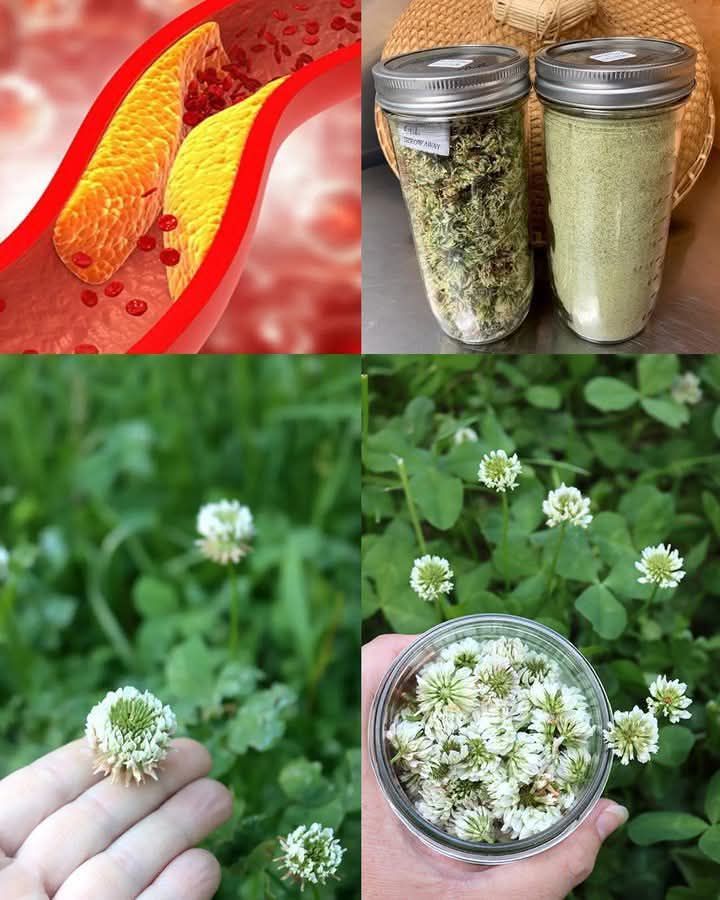White Clover: Unveiling 15 Amazing Uses You Probably Didn’t Know
Imagine a plant so unassuming, so commonplace, that it’s often overlooked entirely. That’s white clover (Trifolium repens), and beneath its humble exterior lies a treasure trove of benefits. Forget just seeing it as a weed; white clover boasts a surprising array of uses, from enriching your garden to providing nourishment for both humans and animals. Let’s dive into 15 amazing ways this little plant can make a big difference!
[
The Power of White Clover: Beyond the Green
White clover isn’t just another plant in your yard; it’s a powerhouse of ecological and practical advantages. Its nitrogen-fixing capabilities make it a natural soil enhancer, and its versatility extends to culinary, medicinal, and agricultural applications. We’re about to uncover a whole new appreciation for this often-underestimated plant.
1. Natural Nitrogen Fixer: A Gardener’s Best Friend
White clover is a champion nitrogen fixer. What does that mean? It hosts beneficial bacteria in its roots that convert atmospheric nitrogen into a form plants can use. This natural fertilizer reduces the need for synthetic fertilizers, leading to healthier, more sustainable gardens.
[
2. Living Mulch: Weed Control and Moisture Retention
Acting as a living mulch, white clover helps suppress weeds by crowding them out and blocking sunlight. It also helps retain moisture in the soil, reducing the need for frequent watering.
[
3. Soil Erosion Control: A Green Guardian
Its dense, spreading growth habit makes white clover an excellent choice for controlling soil erosion, especially on slopes and bare patches of land. The roots bind the soil together, preventing runoff.
[
4. Lawn Alternative or Companion: A Low-Maintenance Dream
Tired of constant mowing? White clover can be used as a lawn alternative, requiring less mowing and fertilization than traditional grass. You can also plant it as a companion plant in your lawn to add nitrogen and improve soil health.
[
5. Pasture Improvement: Nutritious Forage
White clover is a valuable forage crop for livestock. It’s highly nutritious and palatable, providing essential nutrients for grazing animals like cattle, sheep, and goats.
[
6. Honeybee Attractant: Supporting Pollinators
Bees love white clover! Its flowers are a rich source of nectar, attracting honeybees and other pollinators to your garden, contributing to a healthy ecosystem.
[
7. Edible Leaves and Flowers: A Nutritious Snack
Did you know you can eat white clover? The leaves and flowers are edible, though they should be consumed in moderation. They can be added to salads, soups, and teas for a boost of nutrients.
[
8. Herbal Tea: A Soothing Brew
White clover flowers can be dried and used to make a soothing herbal tea. It’s said to have antioxidant properties and may help with minor ailments. Remember to consult a healthcare professional before using it medicinally.
[
9. Wound Healing: Natural Remedy
Traditionally, white clover has been used topically to help heal minor wounds and skin irritations. Its anti-inflammatory properties may contribute to faster healing. *Disclaimer: Consult a healthcare professional for serious wounds.*
[
10. Cough Relief: Traditional Use
In some cultures, white clover is used as a traditional remedy for coughs and respiratory ailments. It’s believed to have expectorant properties that can help clear congestion. *Disclaimer: Consult a healthcare professional for respiratory problems.*
[
11. Ground Cover in Orchards and Vineyards: Ecological Benefits
Planting white clover as ground cover in orchards and vineyards can improve soil health, attract beneficial insects, and reduce the need for herbicides.
[
12. Livestock Feed Supplement: Adding Nutritional Value
Dried white clover can be added to livestock feed as a supplement, providing essential vitamins and minerals.
[
13. Improving Soil Structure: Enhancing Drainage
The roots of white clover help improve soil structure, creating channels that enhance drainage and aeration.
[
14. Compost Booster: Adding Nitrogen to Your Pile
White clover can be added to your compost pile to boost its nitrogen content, accelerating the decomposition process.
[
15. A Symbol of Luck: The Four-Leaf Clover
Of course, we can’t forget the legendary four-leaf clover, a rare variation of white clover that’s considered a symbol of good luck!
[
Conclusion: Embrace the Versatility of White Clover
From enriching your garden soil to offering potential health benefits and providing a feast for pollinators, white clover is truly a remarkable plant. Its multifaceted uses demonstrate its value beyond just being a “weed.” Consider incorporating white clover into your garden, lawn, or even diet (in moderation!). You might be surprised by the positive impact this humble plant can have. So, the next time you see white clover, take a moment to appreciate its amazing potential! Are you ready to give white clover a chance in your garden or explore its potential benefits?
